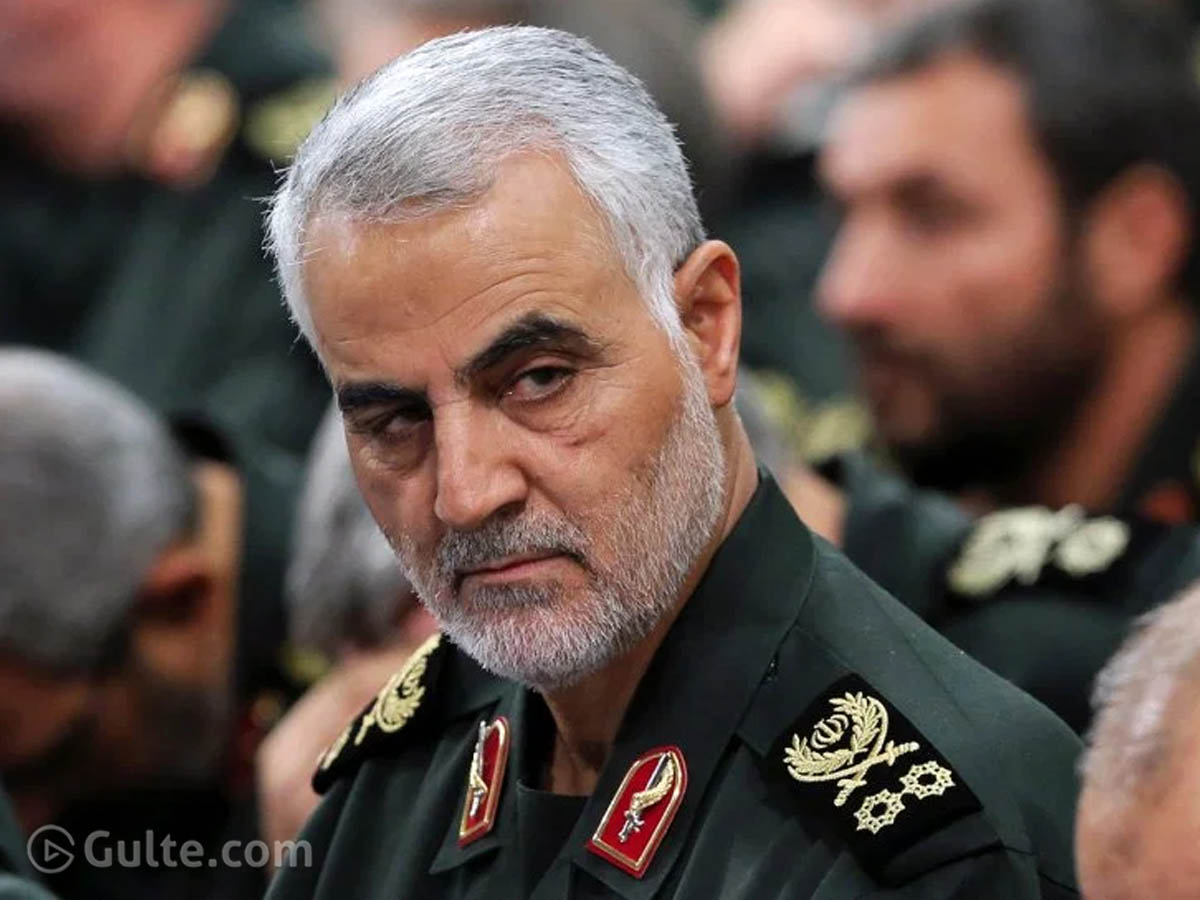Iran to retaliate over the killing of its top military Boss
 TEHRAN : Iran’s supreme leader named the deputy head of the Revolutionary Guards’ foreign operations arm Esmail Qaani to replace its commander on Friday after he was killed in a US strike in Baghdad.
TEHRAN : Iran’s supreme leader named the deputy head of the Revolutionary Guards’ foreign operations arm Esmail Qaani to replace its commander on Friday after he was killed in a US strike in Baghdad.
“Following the martyrdom of the glorious general haj Qasem Soleimani, I name Brigadier General Esmail Qaani as the commander of the Quds Force of the Islamic Revolutionary Guard Corps,” Ayatollah Ali Khamenei said in a statement posted on his official website.
Qaani was described by Khamenei as one of the “most decorated commanders” of the Guards during the 1980-88 Iran-Iraq war.Iran has vowed to retaliate over th has vowed to retaliate over the assassination of the country’s top military commander Major-General Qasem Soleimani. Iranian Foreign Minister Mohammad Javad Zarif warned Friday that the targeted killing of Soleimani was “extremely dangerous & a foolish escalation.”
“The U.S. bears responsibility for all consequences of its rogue adventurism,” Zarif said on Twitter. Soleimani, head of Iran’s elite Quds Force, was killed in a U.S. military airstrike at Baghdad’s international airport. The move was directed by U.S. President Donald Trump, the Pentagon said Thursday.
The U.S. State Department designates the Iranian Quds Force as a foreign terrorist organization, and Soleimani has been blamed for the deaths of hundreds of American and coalition service members. The Pentagon said Soleimani approved this week’s attacks on the U.S. Embassy in Baghdad.
“A crushing revenge will be taken for Soleimani unjust assassination … We will take revenge from all those involved and responsible for his assassination,” Iranian Defence Minister Amir Hatami was quoted by state news agency IRNA as saying.
This is a watershed moment in the struggle between Iran and the U.S. in the Middle East. Iranian President Hassan Rouhani said his death will make Iran “more decisive” in its resistance against the U.S.
“Soleimani’s martyrdom will make Iran more decisive to resist America’s expansionism and to defend our Islamic values,” Rouhani said on state television, Reuters reported. “With no doubt, Iran and other freedom-seeking countries in the region will take his revenge.”‘Watershed moment’ Analysts warn that there will be backlash from Tehran.
“Iranian leaders are proud and quite risk acceptant,” said Eurasia Group. “We expect moderate to low level clashes to last for at least a month and likely be confined to Iraq.
Iranian-backed militias will attack US bases and some US soldiers will be killed; the US will retaliate with strikes inside of Iraq,” said Henry Rome and Cliff Kupchan, analysts from political consultancy, in a report. They predict that Tehran’s response “will stop short of what we would consider war,” and added that “the chance of war is 40%.”
US airstrike in Iraq was an ‘audacious attack’: Vanda Insights
“This is a watershed moment in the struggle between Iran and the U.S. in the Middle East,” Emily Hawthorne, Middle East & North Africa analyst at Stratfor, told CNBC in an email on Friday.
“Striking Soleimani, the head of Iran’s overseas military operations, is a significant attack on Iran’s ability to direct proxy warfare and will be met with Iranian retaliation against the U.S.,” she said.
Tensions between the U.S. and Iran escalated on Sunday after Washington carried out precision strikes on Iranian-backed militia in five locations in Iraq and Syria. The U.S. attacks reportedly killed 25 fighters of the Iran-backed militia in Iraq, the Kataeb Hezbollah.
The airstrikes triggered protests from Iran-backed militia in Iraq who stormed the U.S. Embassy in Baghdad on New Year’s Eve and set fire to the reception area. Responding to the violence, Trump deployed some 750 U.S. soldiers to the Middle East.
“The people who breached the U.S. embassy wall were supporters of Iran-based militias in Iraq. Yes, they are predominantly Iraqi, if not all of them are Iraqi, but they are supported and backed equipped by Iran,” said Hawthorne.
Meanwhile, Eurasia analysts said Iran will likely “resume harassment of commercial shipping in the Gulf and may launch military exercises to temporarily disrupt shipping.”
“Beyond retaliation, Iran’s ultimate goal in Iraq is to make continued American presence unviable,” said Rome and Kupchan. “Iran is unlikely to immediately attack Saudi or Emirati oil infrastructure or US bases in Saudi Arabia, the UAE, Bahrain, or Qatar.
These steps would have the effect of unifying the Gulf against Tehran; Iran will instead target its ire against Washington in the near term,” they said. Oil spike may not be the beginning of a new up trend in prices, strategist says
Retaliatory actions from Iran may lead to “a major confrontation in Iraq” between the U.S. and Iraq, said Matthew Bey, senior global analyst at Stratfor. “More likely is that we see Iran return to backing attacks on oil infrastructure in the Persian Gulf and the rest of the Middle East,” said Bey.
He added that Iran has the capability and willingness to attack major choke points that take months to rebuild in Saudi Arabia’s oil industry. “If we continue seeing a spiral towards further escalation, Iran will certainly consider restarting those attacks,” Bey wrote to CNBC in an email.
On Friday, Iran’s Supreme Leader Ayatollah Ali Khamenei declared three days of mourning and said the “criminals” who killed Soleimani will face harsh revenge, according to Reuters.(With Agency Inputs ).

